-

Ranking Agatha Christie’s murders from least to most likely
By Laura Kay -
-

‘Re-using gemstones and gold pays in so many ways, turning "something old" into "something new" again’
By Jessica Diamond -

'It was like going on a blind date... over a few glasses of wine our friendship was sealed and by three in the morning we had a plan': The creation of a spectacular Moroccan garden
By Kirsty Fergusson -

'The Taylor Swift effect? We've never experienced anything like it': Jeweller Cece Fein-Hughes' consuming passions
By Lotte Brundle -
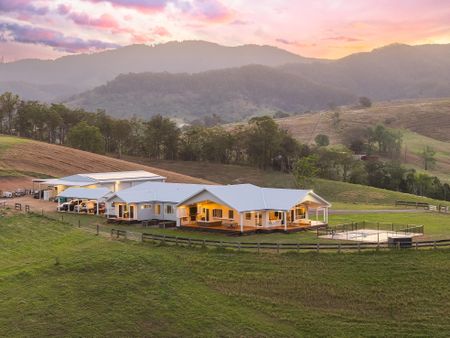
Thinking of running away from the world? Then you'll need one of these log cabins, hillside villas, mountain retreats or island homes, from £75,000 to £6 million
By Toby Keel -

Bridgerton is back and so is the Country Life Quiz of the Day, January 30, 2026
By Country Life -

'It turns out that coconut charcoal is the best substance on Earth for nullifying astronauts breaking wind': The secret uses of plants
By Harry Pearson
-
Sign up for the Country Life Newsletter
Exquisite houses, the beauty of Nature, and how to get the most from your life, straight to your inbox.
People & Places
-
-

Wealthy Boomers collected blue-chip paintings. Gen Z is opting for collectibles. Who will come up trumps?
-

Posh people do well on I'm A Celebrity... Get Me Out of Here! because they survived boarding school: Sophia Money-Coutt's snob's guide to reality television
-
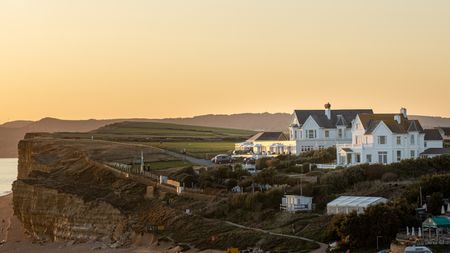
The Seaside Boarding House review: The cosy gourmet getaway on Dorset’s Jurassic Coast with a proper sense of place
-

What do Taylor Swift, Guy Ritchie and The King have in common? They all love a 200-year-old fabric born in Scotland’s textile mills
-
Property
View all Property-
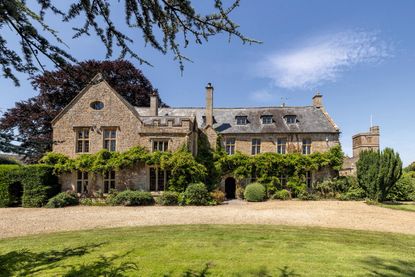
A medieval parsonage that's a 'fantasy mash-up of architectural styles', just down the road from a swish Somerset hotspot
By Arabella Youens -
-

Thinking of running away from the world? Then you'll need one of these log cabins, hillside villas, mountain retreats or island homes, from £75,000 to £6 million
By Toby Keel -
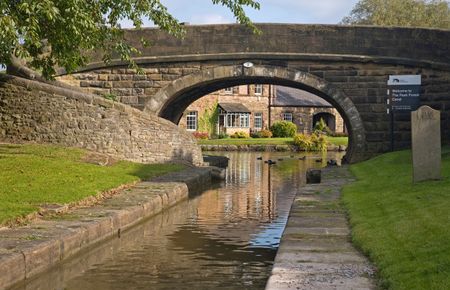
Brace yourself: The latest 'best places to live' ranking of 1,447 towns, cities and villages is out... and there are some very odd winners and losers
By Annabel Dixon -

Best country houses for sale this week
By Country Life -

A Piddle Valley paradise for sale, with eight acres, and a pool that'll mean you can't wait for winter to end
By Arabella Youens -
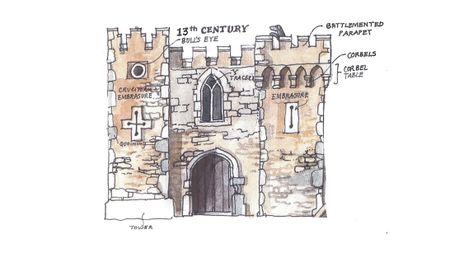
Can you tell the difference between a trefoil and an embrasure? A pictorial guide to medieval architecture
By Toby Keel -

A grand seven-bedroom manor house with 11 acres, stables, 600 metres of river front and space for a grand piano
By Julie Harding
-
Our expert voices
Interiors
View All Interiors-

This clever interiors trick is the secret to creating multifunctional spaces — and it was integral to the design of many English country houses of the past
By Giles Kime -
-

'It was a complete wreck': Reclaiming a Hampshire coaching house from the earth
By Arabella Youens -

How do you add a dash of theatricality to a 1930s house? By taking inspiration from the legendary architect and set designer Oliver Messel
By Arabella Youens -

Are you a curator, a sympathiser or a conscientious objector? Take our Interiors Editor's quiz to discover your design DNA
By Giles Kime -

‘The pair drove to Belgium in their Mini and returned with the chair wrapped in duvets’: The mother-and-daughter duo that brought a converted Cotswolds barn back to life
By Arabella Youens -

'You should need little reminding that the 1980s are back': Country Life's interior-design predictions for 2026
By Giles Kime -
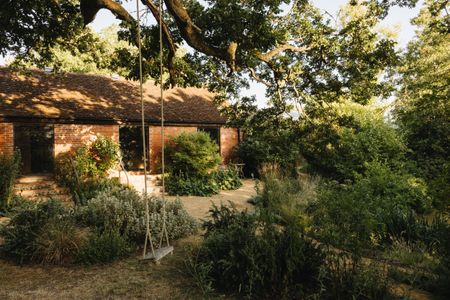
How an eco-friendly interior designer transformed a former milking parlour into a multi-purpose space in the middle of the Pandemic
By Grace McCloud -

How Britain’s biggest and best country houses are decking the halls (and façades) for Christmas
By Bella Fulford
-
LIFE & STYLE
View All LIFE & STYLE-
-

Ranking Agatha Christie’s murders from least to most likely
By Laura Kay -

‘Re-using gemstones and gold pays in so many ways, turning "something old" into "something new" again’
By Jessica Diamond -

The Glovebox: BMW's moving art can't stop being the star of the show
By James Fisher -

What is everyone talking about this week: Mutton chops are back and everyone's drinking sloe gin
By Will Hosie
-
COUNTRYSIDE
View All THE COUNTRYSIDE-
-

'It turns out that coconut charcoal is the best substance on Earth for nullifying astronauts breaking wind': The secret uses of plants
By Harry Pearson -
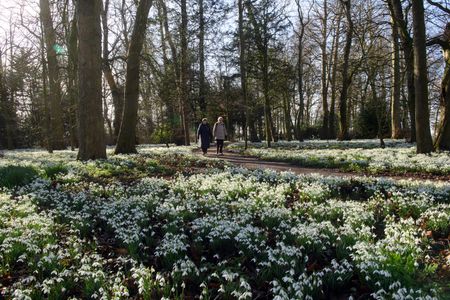
Snowdrop shows signal spring’s arrival
By Julie Harding -
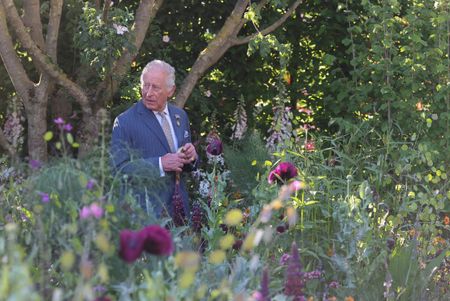
RHS to run two new touring shows at Badminton and at the royal estate at Sandringham
By Julie Harding
-
Gardens
View All Gardens-

'It was like going on a blind date... over a few glasses of wine our friendship was sealed and by three in the morning we had a plan': The creation of a spectacular Moroccan garden
By Kirsty Fergusson -
-
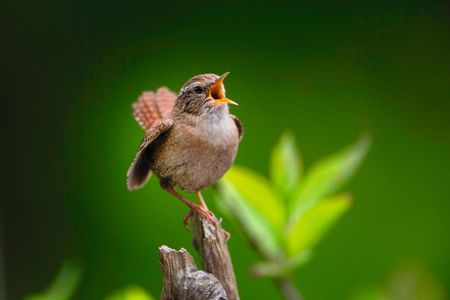
Alan Titchmarsh: I'm always asked about 'creating a sensory garden', and my answer is always the same
By Alan Titchmarsh -

The gardeners' gardens: Alan Titchmarsh, Mary Keen, Clive Nichols and more on the places they have on their 2026 hitlists
By Tiffany Daneff -
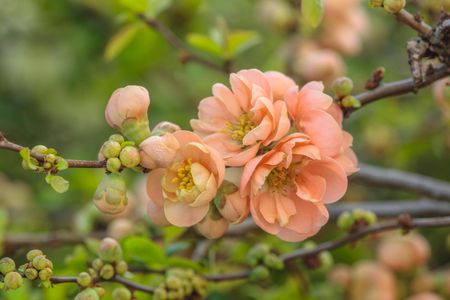
Beautiful, rewarding, unpronounceable: Chaenomeles, the spectacular shrub that grows happily in gardens where azaleas will never bloom
By Charles Quest-Ritson -
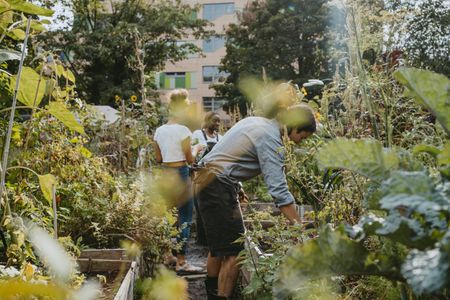
What is everyone talking about this week: Rewilding starts in your own back garden — even in the city
By Will Hosie -

English country gardens once dotted the French Riviera. Now the last of them is about to slip away forever
By Charles Quest-Ritson
-
ART & CULTURE
View all ART & CULTURE-
-

A study in sculpture: 10 of the finest pieces from the Royal Collection
By Sir Jonathan Marsden -

Eileen Soper: The 'schoolgirl among the masters' with paintings in millions of homes, even yours
By Ian Morton -
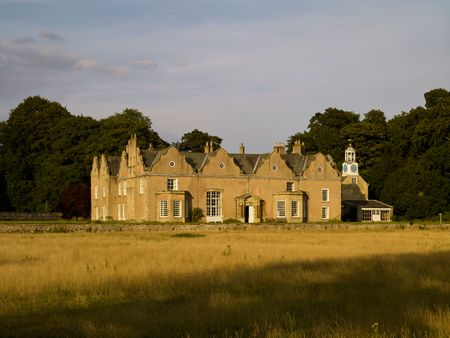
A mesmerising portrait in the eerie country house that inspired Charlotte Brontë to write 'Jane Eyre'
By John Goodall -

Wealthy Boomers collected blue-chip paintings. Gen Z is opting for collectibles. Who will come up trumps?
By Owen Holmes
-
Travel
View All Travel-

From Sicily to Sussex: What the Normans did for us
By Pamela Goodman -
-

Badrutt's Palace Hotel review: The beating heart of St Moritz’s jet-set social scene has never put a foot wrong
By Rosie Paterson -
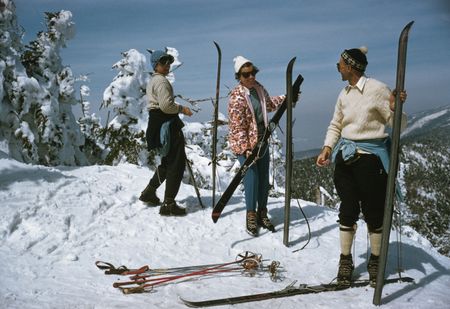
'I do understand, however, that some people like skiing. Weirdos, if you ask me, but each to their own': A snob's guide to skiing
By Sophia Money-Coutts -

Sopwell House hotel review: For a spa trip, look no further
By Lotte Brundle -

The Seaside Boarding House review: The cosy gourmet getaway on Dorset’s Jurassic Coast with a proper sense of place
By Emma Hughes -

Above the clouds to beat the crowds: Where to stay in Wales if you want to conquer the 'other' Snowdon
By Tiffany Daneff
-
Food & Drink
View All Food & Drink-

Gill Meller's recipe for wholesome and flavourful cauliflower cheese gratin
By Gill Meller -
-

Forget haggis — the humble swede is the real hero of the Burns Night meal
By Douglas Chalmers -

Tom Parker Bowles talks tartiflette: 'This is not a dish worried about precision, elegance or nuance. It is all about beautiful ballast and you wouldn’t want it any other way'
By Tom Parker Bowles -
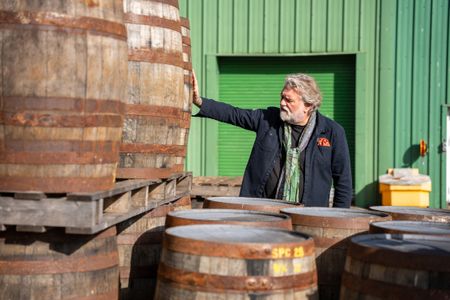
For Hairy Biker Si King, the secret ingredients will always be hard work and community
By Molly Pepper Steemson -

The enduring allure of menus from ancient civilisations to modern day, via the revolutionary France
By John F. Mueller -
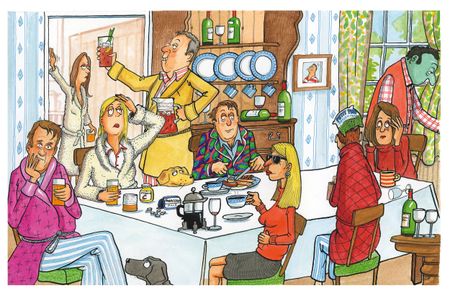
The 12 types of hangover, from 'Backwards Binoculars' to 'Titanic', and how to cure them all
By Olly Smith -

'We begin making in May and start packing and despatching in November — it’s carnage': How the Cotswolds' favourite cake-makers get ready for Christmas
By Jane Wheatley
-







